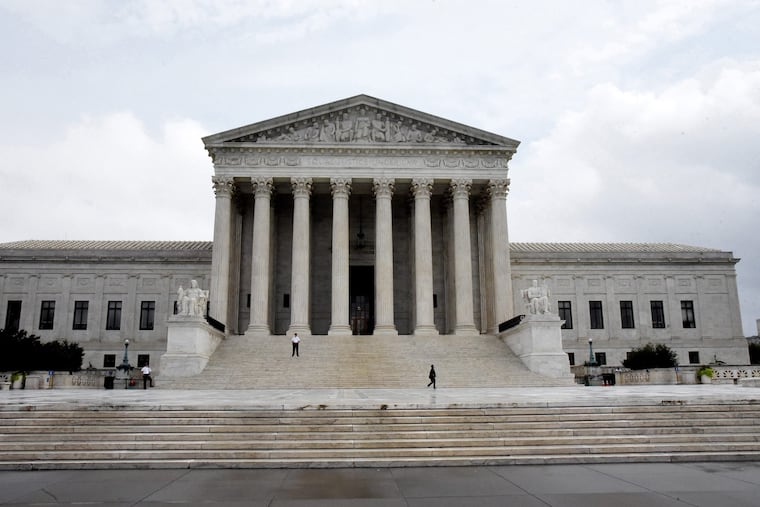The Trump administration’s denial of transgender identity is a denial of science | Opinion
The Trump administration's latest denial of rights for transgender people botches the science.

The Trump administration's war against transgender identity continues. Last Friday, the White House requested that the Supreme Court bypass lower-court challenges to a military ban on transgender people so it can rule on the issue this term. The proposed ban would effectively block transgender men and women from enlisting, possibly leading to discharge and the suspension of medical treatments for current service members. But the administration's push does not end there. Officials in the Department of Health and Human Services recently proposed to define gender as male or female and set permanently by someone's sex at birth. This definition is worryingly inaccurate. Accepting it would have negative impacts on Americans across many fronts, including health care, education, and employment.
>> READ MORE: Government asks high court to hear transgender military case
In a leaked memo draft, Health and Human Services stated that gender should be defined "on a biological basis that is clear, grounded in science, objective, and administrable" — an attempt to make this political position sound scientific. Some commentators have accepted and amplified this narrative, concluding that the current administration's approach to sex and gender is "adhering to science" while the "progressives" who object are somehow ignoring biology. These conclusions are, however, anything but "objective" and "grounded in science." We felt compelled – as a biologist, a researcher in human sexuality, and a legal expert on health policy – to explain the science more completely, and to address persistent misconceptions.
In high school, we learn that humans have 23 pairs of chromosomes, the 23rd being "sex chromosomes" that are either XX or XY. Simplistically, an XX pair results in development of female genitalia, female traits at puberty, and female gender identity. An XY pair of chromosomes typically results in male expression of these features.
But the scientific reality is much more complicated. Sex is based on a number of physiological factors including chromosomes, internal and external anatomy, and hormones. We can have chromosome combinations beyond XX and XY, including X0, XXX, or XXY. Genital differences arise not just from chromosomes but by a variety of environmental factors in the womb that can cause atypical development in the body. These factors can lead to a spectrum of physical conditions that medical professionals call "intersex," not definitively male or female at birth. For this reason alone, the administration's approach would be incredibly difficult to implement in many cases and would leave hundreds of thousands of intersex individuals unacknowledged, and justifiably concerned about legal protection against discrimination.
Decades of research have landed gender, like biological sex, on a spectrum. Gender identity has been accepted by nearly every major psychological and sociocultural academic professional organization as distinct from biological sex. The American Psychological Association has defined gender identity as a person's sense of self as female, male, or something else. Development of gender identity is at least as complicated as development of biological sex. While much of the research is still inconclusive about what exactly shapes gender identity, we know that it is typically a stable trait formed at a young age (often before 7 years old) that does not change as a person ages. Further, gender is an identity marker often used to discriminate against and harass individuals.
That's why many states and localities – including Philadelphia — have antidiscrimination laws that include gender identity. These laws bring cases of discriminatory treatment to light, complementing the work of psychologists, health-care providers, and scientists who understand that how one expresses gender can impact one's overall well-being. Young people in schools across the U.S. suffer every day from bullying because of how people believe they should express their gender. Under the Obama administration, the Justice Department was able to use federal antidiscrimination laws to ensure that schools address this problem. This administration should follow that lead and take an actual science-based approach to advancing gender equity. The Trump administration's proposed definition of sexual identity, on the other hand, would legitimize harassment by stating that anyone who does not fit the male-female binary has no voice in our legal system.
What the Trump administration wants is policy that oversimplifies biological sex, conflates sex and gender, and dredges up an inaccurate binary of "male" or "female"—all to undo legal protections for hundreds of thousands of Americans.
Katherine Goodrich is an associate professor of biology, Justin Sitron the director of the Center for Human Sexuality Studies, and John Culhane a co-director of the Family Health Law and Policy Institute at Delaware Law School, all at Widener University.